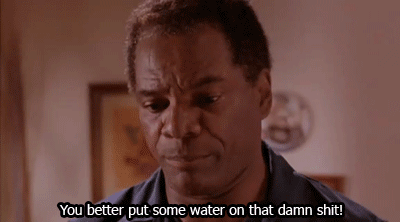
Did Jacqueline find another lover, (perhaps a woman?), to fill the void that Marcus left? As the audience, we’re left to assume that Jacqueline 'got what she deserved' because she was cold-hearted (similar to how Marcus was earlier in the movie). We also don’t know what happened to Jacqueline after Marcus left her in the bed upon realizing he loved Angela. We never know what happened to Jacqueline after she told Marcus “it’s over” and left hurriedly to catch the cab.

In fact the story is also about Jacqueline, though the Hudlin Brothers and Eddie Murphy chose to highlight Marcus as the central character who can learn from love. I’ll start with the counter arguments then explain the problems with each as it relates to a larger discussion of gender and sexuality in the context of romantic relationships.Ĭounterargument #1: It’s not about Jacqueline being able to manage a career and sex life, it’s about my man Marcus being done wrong! (Note: The point of this article is not to set up useless binaries between heterosexual men and women, but to explore how the relationships presented in Boomerang might be a reflection of society's problem with successful, independent, sexual, and loving women.) The thematic conclusion presented in the plot eerily reflects real world assumptions about sex and romantic relationships. My main argument is that while both Marcus and Jacqueline are flawed, it only seems that Marcus gets rewarded in the end by living a happy life with Angela (Halle Berry) and Jacqueline gets vilified, never seen or heard from again. I've always been more interested in Jacqueline, a highly successful and sexual Black woman, than Marcus, the predictable dunce who eventually learns a lesson about love. Needless to say, the more I watch Boomerang the more I notice Robin Givens’ character, Jacqueline, as the quintessential villain presumably because she can manage a career and a sex life.
#Boomerang eddie murphy movie#
However, as I’ve gotten older, I’ve watch the movie with a different lens-a more grown up one, if you will. Each time I watch the film, I gather something new, whether it be one of Tyler’s (Martin Lawrence) pro-black conspiracy theories or the unintended comical reactions of an extra on the exercise machine in the background. I’ve watched Boomerang at least several dozen times throughout my life (I was eleven years old when the film was first released). Jackson’s (John Witherspoon) now legendary phrase, “Bang! Bang! Bang!” Without a doubt, Boomerang is one of the best American comedies of the twentieth century. The movie, arguably one of Eddie Murphy’s best films, introduced us to Bony T (Chris Rock), the incomparable antics of Strange (Grace Jones), and blessed us with Mr.

It’s hard to believe that eighteen years ago audiences around the country first laughed out loud at the box office hit film Boomerang (1992).

Anyhoo, here's my take on one of my favorite movies of all time, Boomerang, and why I think Jacqueline's story is important. My article prompted a thoughtful response from director, Reginald Hudlin, which was also deleted by The Loop 21 (ugh!). This post first appeared on The Loop 21 three years ago (The Loop 21 has since deleted the article.boo!).


 0 kommentar(er)
0 kommentar(er)
